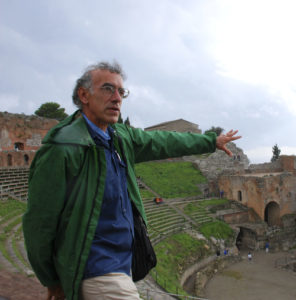Monday, January 30, 2017
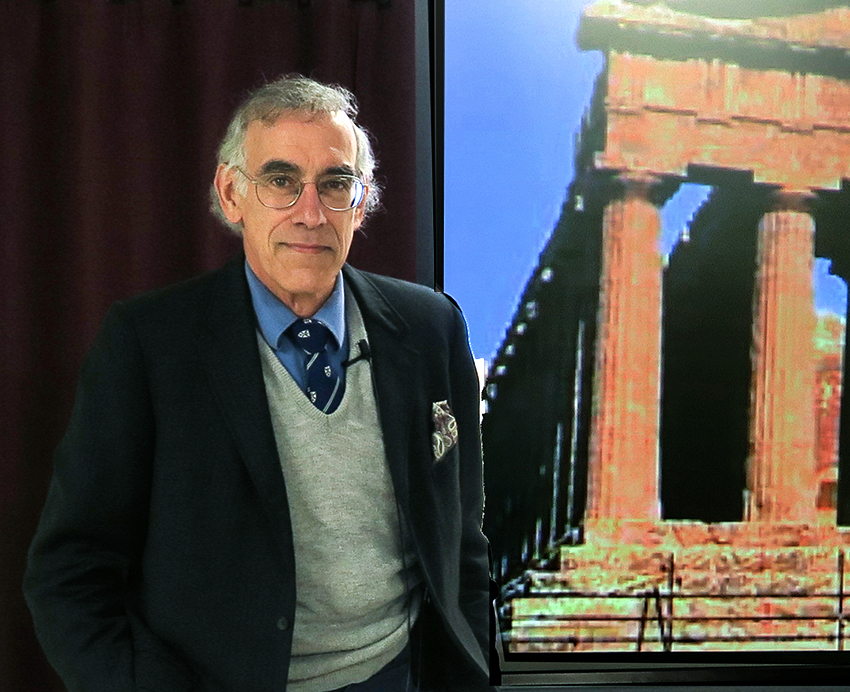
In two golden periods a millennium and a half apart, Sicily led western civilization. First as part of ancient Greece and Rome, then as part of the medieval Arabic-Norman empire, Sicily pioneered history, psychology, art, ethics, society, governance, and literature. A uniquely gifted guide explored those eras of Sicilian civilization with us. Douglas Kenning is a classical scholar and president of Sicily Tour, a company that offers tours of the island with an emphasis on its history and culture. Kenning’s lively, insightful, and richly illustrated talk captured the beauty and significance of a brilliant, important place, the repository of some of the most impressive structures and artifacts of the foundations of western civilization. And we served cannoli. . . .
…………
Some people not only know a lot but make you want to know what they know. Doug Kenning is one of those people. He may look like an absent-minded professor but he speaks with the assurance and allure of a master story-teller.
Kenning used remnants of the golden ages of Sicily to show us the civilizations that created those golden ages. For example, he showed us the remains of magnificent Greek temples and superimposed the remains on representations of the complete structures. He told us how the Greeks regarded and used their temples, as homes for the Gods where mortals were not permitted to go. The breath-taking settings in which the Greeks built the temples perfectly reflected their purpose.
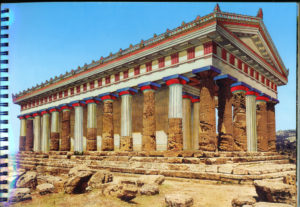
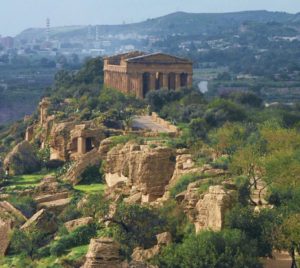
With similar insight, Kenning showed us Greek sculptures and theaters; Roman amphitheaters, villas, and mosaics; Arab ceramic, wood carving, and mosaics; and matchless Norman chapels and cathedrals. Each slide served as a springboard for Kenning’s observations about how these societies functioned, how their peoples lived everyday life, and how their accomplishments enrich us today.
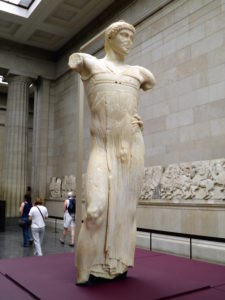
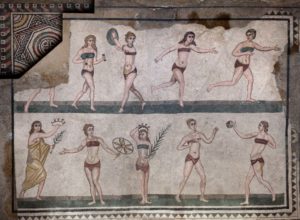
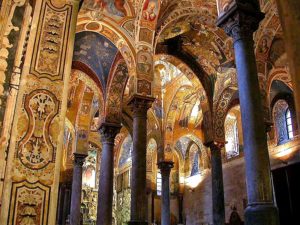
Which brings us to food. Yes, the Greek-Roman and Arab-Norman periods in Sicily shaped our government, philosophy, science, and arts, but we already vaguely knew something about all that. We were less likely to have known that, for example, the Arab Muslims introduced citrus, pistachios, seafood, and mulberries to the west via Sicily. They invented pasta from hard, durum wheat. (“Durum” is Latin for “hard.”) They introduced sugar cane and almond paste to Europe through Sicily with confections such as marzipan. They gave Sicily cannoli, those sweet pastry tubes filled with ricotta cheese. Turns out “ricotta” comes from the Latin for “recooked” because the cheese is the re-coagulated left-overs from the making of other cheeses. Kenning knew all about cannoli, too. He talked about them because our enterprising Deane Hartley had made and brought along a trayful of cannoli (from a recipe by Jeanne Snyder, who will return to SHARP in May for more plant-based cooking). Although the Hartley-Snyder cannoli were plant-based and so included no cheese, that didn’t prevent the audience from gobbling up the samples. Score one for inauthenticity.
So our foray into the golden ages of Sicily proved to be tasty as well as educational and entertaining. Perhaps you learn history a bit better when you get to taste it, too.
……….
Douglas Kenning (PhD, Edinburgh) has taught at universities in Tunisia, Japan, and Italy. Besides a university professor, he has been a biologist, actor, army officer, Manhattan taxi driver, academic administrator, and writer. He divides each year between the Bay area, where he lectures on Mediterranean histories and cultures, and Sicily, where he runs Sicily Tour. When told he may look like an absent-minded professor, he said the description “somewhat dented my Sean Connery self-image.”
